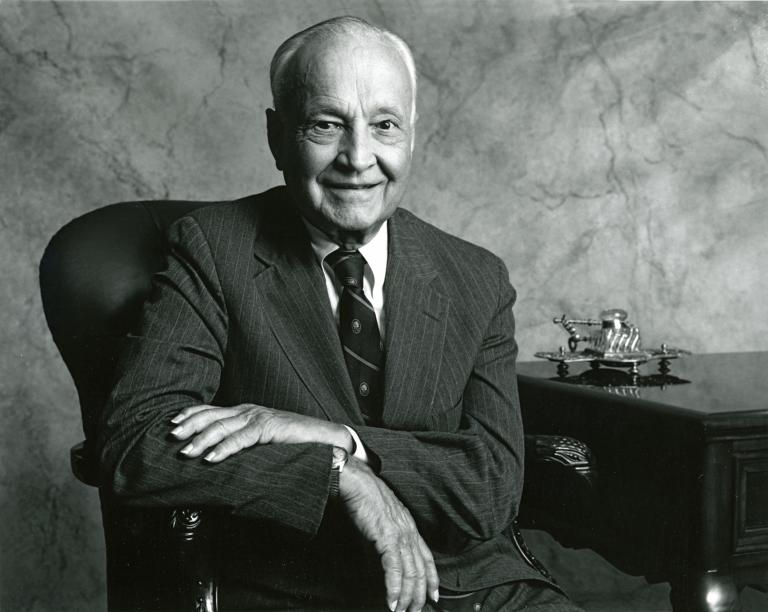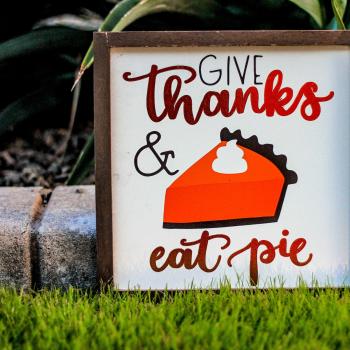Just like you wouldn’t go into the woods without a map or compass, it can be difficult to immerse yourself in the world of spirituality without a guide.
I still believe the spiritual path is best navigated as a solo journey and have railed against gurus in the past. But I also realize the importance of having a “mentor,” a guiding force who, when needed, dispenses valuable advice and counsel, ensuring that you, the spiritual journeyer, stays on course.
To find your own personal mentor, look to your heroes.
The marketer and philosopher Seth Godin has an interesting take on mentors, pointing out that a mentor can be anyone—living or dead. Godin says we merely need someone whose example we live up to and honor, “even if we never meet them, even if they’ve passed away.” Since most of us don’t have mentors within our reach, “for the rest of us, heroes will have to do.” The good news is there’s a vast supply available. In Godin’s words:
I find heroes everywhere I look. I find people who speak to me over my shoulder, virtual muses, who encourage me to solve a problem or deal with a situation the way they would. This is thrilling news, because there are so many heroes, so freely available, whenever we need them.
Once you find your own personal hero to emulate, Godin even coined an expression that can help guide you in your life decisions:
WWHD. What Would My Hero Do?
Commiserating with a dead hero may seem like an unusual way to receive guidance, but consider that Napoleon Hill, author of the motivational classic Think and Grow Rich, gave similar instruction. Buried deep in Hill’s long-time bestseller, there’s a chapter devoted to “The Sixth Sense: The Door to the Temple of Wisdom” that addresses this subject. His initial comments on mentorship mirror those of Godin:
My experience has taught me that the next best thing to being truly great is to emulate the great, by feeling and action, as closely as possible.
At this point, Hill ventures into more esoteric territory that may surprise those who view Hill as a straight-laced uber-capitalist. He reveals that “every night over a long period of years,” he “held an imaginary council meeting” with a group he called the Invisible Counselors. Who were his counselors? Some of the greatest minds of all time including Ralph Waldo Emerson, Abraham Lincoln and Thomas Edison.
Hill says that his communications with the panel of counselors worked like this:
Just before going to sleep at night, I would shut my eyes and see, in my imagination, this group of men seated with me around my council table…here I had the opportunity to sit among those whom I considered to be great…(I) called on my cabinet members for the knowledge I wished each to contribute.
Now it needs to be noted that Hill had extensive knowledge of each of his “cabinet members,” which also included Henry Ford and Napoleon, having studied their lives in detail. He knew their backgrounds, their manner of thinking and their individual characteristics. This makes it easier to see how he may have conjured them up using his imagination.
But Hill’s story goes a step further. After a few years of regular evening sessions, Hill notes that he “was astounded by the discovery that these imaginary figures became, apparently, real.” In the book, he details several encounters that moved beyond give-and-take conversations where his counselors begin giving him unsolicited advice.
Hill awoke one night to find Abraham Lincoln standing at his bedside. Lincoln informs him that: “the world will soon need your services. It is about to undergo a period of chaos that will cause men and women to lose faith and become panic stricken. Go ahead with your work…this is your mission in life.” Hill follows this advice (and who wouldn’t listen to a direct appeal from Abe Lincoln) which leads him to write the aforementioned Think and Grow Rich.
As time goes on, Hill discontinues these regular nightly meetings, but throughout his life he goes back to the counselors whenever he needs mentoring or advice. They were always there for him:
On scores of occasions when I have faced emergencies—some of them so grave that my life was in jeopardy—I have been miraculously guided past these difficulties through the influence of my counselors.
Ready to find your own spiritual counselor?
As mentioned, Hill was a voracious reader and in effect knew the counselors he enlisted well. So, it only makes sense for you to choose a mentor whose teachings, and life, you’re well versed in—or to kick-off the process by studying books by and about your preferred mentor.
Additionally, Hill believes the earliest one can encounter the counselors is the age of 40—and that in most cases, they’re usually not accessible “until one is well past 50” and only after you’ve gone through “years of meditation, self-examination and serious thought.”
I count among my own spiritual mentors, the writer Thomas Moore, whose many books on the varying aspects of the soul reward me each time I read them. I also lean on the American philanthropist and spiritual author John Templeton, who passed away in 2008. In times when I feel spiritually off center, I pick up one of my well-worn copies of Templeton’s The Worldwide Laws of Life or Wisdom from The World’s Religions and find nuggets of insight like this:
Loneliness cannot be overcome by getting something; it must be overcome by giving something.
Who are your spiritual mentors? And if you say you have none, consider historical spiritual figures (think Jesus, Buddha, Gandhi) or the spiritual writers you admire most. Then, do a deep dive into their history and writings. It could be the start of a valuable, and rewarding, long-term relationship.














